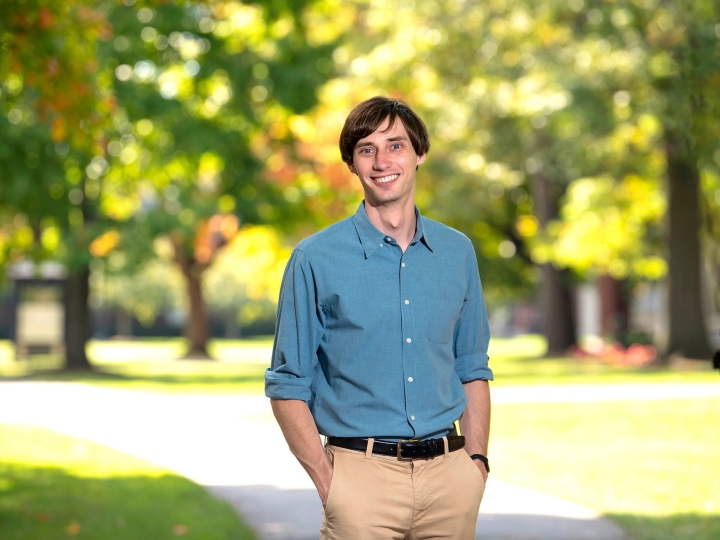
Craig Beal ’05, Mechanical Engineering
June 24, 2020
Awareness is really the most important thing for safe driving. What's required to drive on a slick road is to understand how much grip there is and how slowly you need to go. The problem is that you don’t know what’s happening on the road ahead of you.
When road conditions turn slippery, drivers will slow down to stay in control of their vehicles, but they can only react to what they can see and feel around them. When the road beneath you is dry, there's no way to know about the patch of black ice or gravel lurking around the next corner.
It's a problem that's been around since cars were invented, but Bucknell Professor Craig Beal '05, mechanical engineering, says we may now have the technology to fix it. The next-generation driver-aid technologies he's helping to develop may soon be able to warn drivers about the hazards that lie ahead — far before they can be seen.
Funded by a $150,000 grant from the National Science Foundation (NSF) awarded in 2018 and a portion of a $1.2 million NSF grant awarded in 2019, Beal is studying how vehicles might communicate information about road conditions with one another over a network, such as the 4G and 5G cellular networks, then alert their drivers or take automatic action as needed.
"We're not looking at just one vehicle on the road, but tens of thousands of vehicles on the road," Beal says. "If the car 100 meters ahead of you knows what's happening there and can pass that information back to you, you can drive more safely — because you know what's coming."
Beal's work in the lab creates transformative, real-world learning experiences for his students. From his drive-in, drive-out lab in Academic East, he conducts his research with a hand-built, electric, drive-by-wire car. Bucknell students regularly help him upgrade the vehicle and program its computer controls — and use it in their own research. Beal says automotive engineering offers an accessible platform for students to collaborate, since modern vehicles incorporate many different aspects of engineering, including mechanical, electrical and computerized systems.
"Automotive engineering is very cross-disciplinary — modern automobiles have hundreds of thousands of lines of code on them that control what the vehicle does, in addition to the mechanical and electrical systems," he says.
Beal notes that automakers, too, are interested in the driver-assistance technologies that he studies. Traction control systems are now ubiquitous in new vehicles, and lane-departure warning and automatic braking systems are becoming more and more common. But Beal says a love of teaching inspired him to work in higher education, rather than in the automotive industry.
"What excites me about teaching at Bucknell are the high-impact learning experiences," Beal says. "Class and homework can provide a foundation for students, but I really like to go after projects where students can go out into the community and engage with industrial partners, or even examine their work in an international context through study abroad."
A Bucknell graduate himself, Beal builds those sorts of experiences into his engineering courses. And, much like his electric vehicle, he says he continually upgrades his classes and lab activities to make them more meaningful, relevant and authentic for his students.
"I like to innovate in my classes, and very rarely do I teach the same thing the exact same way, year after year," Beal says. "I update my lab activities nearly every year in order to provide students with the best possible open-ended, real-world experiences."

